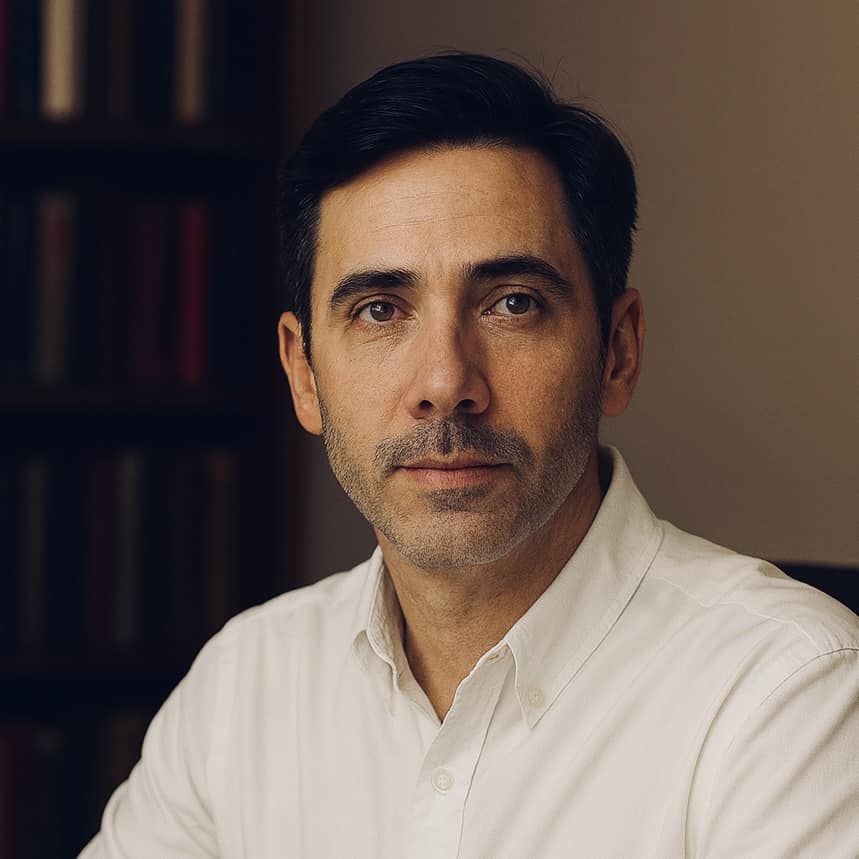Today, let’s dive into something we all wrestle with at some point: growing up. As Americans navigating the hustle of New York City or the laid-back vibes of California, we often assume growing up happens naturally, going to college, landing that first job, starting a family. But here’s the truth: maturity isn’t a gentle stream flowing over time. It’s more like a sudden storm, shaking up how you see the world. To truly grow up, you need to embrace independence, know when to stay firm, and most importantly, stop trying to please everyone. Join Cloverlogy on this journey to unpack practical, relatable insights you can apply to your life.
What Is Growing Up? It’s Not Gradual – It’s Sudden
Ever thought of your life as a book with different chapters? When we’re kids, our parents and grandparents wrap us in a warm bubble of care. It’s a carefree time when the world feels like a playground. Then, as we grow, we step into the real world, facing responsibilities: paying bills, building a career, maybe even looking after our loved ones. In America, this often kicks off when you leave home for college in a new city or take on your first job. And when old age creeps in, we lean on our kids or community for support.
Each of these stages comes with a turning point, a moment that flips your perspective on life. That’s what we call growing up. Picture a young woman from Texas heading to Boston for college: she’s suddenly doing her own laundry, cooking, and budgeting, no more mom waking her up. That’s growing up. Or a guy from Chicago, fresh out of school, diving into the cutthroat job market, stressing over rent, groceries, and sending money home to his parents. He learns to negotiate salaries and handle tough bosses, that’s growing up too. Even a retiree in Florida, figuring out how to bond with grandkids and adjust to life without a 9-to-5? Yup, still growing up.
But here’s the thing: everyone’s circumstances are different, so the path to maturity looks unique for each of us. A kid from a working-class family in Detroit might start working at 18, while someone from Silicon Valley might be supported by their parents until 22. The Detroit kid might face a “shock” of maturity earlier, learning the value of a dollar through sweat and tears. The other might hit a wall at 30, losing a job and scrambling to send out resumes. In America, where opportunities seem endless but competition is fierce, maturity varies not just in timing but in intensity. Someone who’s faced early setbacks often has a deeper understanding of risk compared to someone coasting smoothly at 30.
Many of us fall into a common trap: thinking age determines maturity. We assume it comes gradually with milestones, 18 when you start college, 22 when you graduate and work, 30 when you build a career. Time will shape us, like a clock ticking steadily. But I see it differently, and maybe you’ve felt this too: growing up doesn’t creep in slowly. It hits suddenly, often after major shocks. Only painful experiences, failures, or profound realizations truly shift your mindset.
Here’s an example: You can’t grasp the weight of sacrifice until you’ve lived for someone else. An American entrepreneur who lost everything in the 2008 financial crisis learns to value money because they’ve fought tooth and nail to rebuild. You don’t cherish family until you’ve felt their absence, maybe through a divorce or a sudden loss. These mental shifts come from life’s turning points, and you have to live through them. No one can teach you to grow up if you haven’t stumbled. No bestselling book or TED Talk can replace the lessons of real-world falls. Growing up early often means taking hits, but that’s the price of true maturity.
Independence: The Bedrock of Growing Up
To grow up, the first thing you need is independence. This isn’t just about paying your own bills or living alone, it’s about being independent in your thoughts and emotions. In America, we celebrate individualism, “Be your own person”, but many of us still get caught living for others’ expectations. A college freshman might pick a major to please their parents, not because it sparks joy. An office worker might grind away at a job they hate just to impress their boss.
Independence means listening to yourself. What do you want? What are your values? Don’t let others define that for you. Think of Oprah Winfrey, born into poverty in Mississippi, she didn’t let her circumstances or society’s biases dictate her path. She built her empire by trusting her own worth, not chasing others’ approval. That’s real independence.
But independence isn’t easy. It means facing the fear of rejection or failure. Choosing your own path might cost you relationships or opportunities. In return, though, you find yourself, and that’s the foundation of growing up. Ask yourself: “Who am I living for? Is this choice really mine?” If the answer shakes you, it’s time to pivot.
Staying Firm: Protecting Your Space
The second key to growing up is learning to stay firm when it counts. This might sound harsh, but in America’s fast-paced, sometimes cutthroat society, you need to set boundaries. Being firm doesn’t mean being cold or cruel, it’s about saying “no” when necessary to protect your energy and values.
Imagine this: A coworker asks you to take on their project, even though you’re swamped. You say yes to avoid seeming “uncooperative.” The result? You’re burned out, and they take it for granted. Staying firm means saying no, not because you don’t want to help, but because you respect your own time and energy.
In America, our “hustle culture” often pushes us to please everyone – bosses, friends, family. But if you don’t set boundaries, you’ll get drained. Look at someone like Steve Jobs: He was famously tough, saying no to ideas that didn’t align with his vision, so he could focus on what mattered. Staying firm doesn’t make you a jerk; it helps you grow by safeguarding your worth.
Stop Trying to Please Everyone: Escaping the “Nice Guy” Trap
The final, and perhaps most crucial, lesson is to stop trying to please everyone. It’s a sweet-sounding trap many Americans fall into, especially in a culture that values politeness and harmony. We’re taught being “nice” is noble: helping coworkers, yielding to friends, sacrificing for family. But here’s the harsh truth: Unconditional kindness can lead to your own downfall.
Let me share a brutal formula about human nature: 100 – 1 = 0, and 0 + 1 = 100. Give a homeless person $10 every day, then one day give $1, they might curse you. But give them 10 cents daily, then suddenly $10, and they’ll cry with gratitude. Human emotions are fickle and unpredictable. In America, where relationships often hinge on mutual benefit, you might buy someone gifts or support them, but one misunderstanding can erase it all. Feed a dog for three days, and it remembers you for three years; spend three years with a person, and they might forget you in three days.
Consider this historical tale: Lü Bu betrayed Dong Zhuo, despite being treated like royalty, all for a woman. In contrast, Liu Bei threw his child to the ground in front of Zhao Yun, and that general stayed loyal for life. Kindness given to the right person is a light; given to the wrong one, it’s a self-inflicted wound. People with twisted character might scorn you, envy you, or see you as an easy mark. When someone calls you “nice,” watch out, they might be milking you for benefits.
In America, many get stuck in “people-pleasing syndrome” – putting others’ needs first, ignoring their own feelings, even letting themselves be walked over just to avoid upsetting anyone. But here are two big mistakes to avoid:
- Thinking kindness will be returned: Don’t expect it. Help others without expecting repayment, like lending money you’re okay losing. Testing human nature often leaves you burned.
- One-sided giving ruins relationships: Relationships need give-and-take. The more you give, the weaker your position. The boomerang effect: Be too nice, and people take it for granted, demanding more. You lower your own value, and when you want to walk away, you’re stuck – hurting, regretful, trapped.
If you’ve ever been used for being “too nice,” it’s time to learn to say no. Saying no isn’t selfish; it’s the kindest thing you can do for yourself. A truly mature person has principles, chooses who to trust, and doesn’t let kindness be weaponized against them.

Signs You’re Not There Yet: Procrastination and Fear of Change
One clear sign you haven’t fully grown up? Procrastination – a common struggle in America’s fast-paced world. “I’ll do it tomorrow,” “I’ll try next year,” “I’ll start when everything’s perfect.” People wait for ideal conditions, but life doesn’t wait. Here are two practical tips:
- Embrace uncertainty: Life is unpredictable. In America, the stock market can crash, resources are limited, and opportunities are fiercely competitive. There’s no reward for playing it safe. Fight for what you want, adapt to constant change, and you’ll become more proactive, stronger, and mature.
- Life is a moving process: Nothing stays the same. Flunked English in middle school? Doesn’t mean you can’t master it later. Take Jack Ma – though not American, his story resonates: He ranked 19th applying for a KFC job, knew no English, but biked 12 miles daily to learn. From “failure,” he became a billionaire. You don’t need to grow up for others; focus on sharpening your skills and character. Don’t take bad advice from the wrong people, it’s worse than bad medicine.
Wrapping Up: Grow Up by Living for Yourself
Hey friend, growing up isn’t a slow climb; it’s a series of jolts that reshape your mindset. To truly mature, be independent, trust your own worth and live for your goals. Stay firm, say no to protect your energy. And above all, stop trying to please everyone, kindness needs boundaries to shine for the right people at the right time. You’ll come out stronger, living a life that’s truly yours.
I hope this feels like a chat with a friend, sparking thoughts about your own journey. What do you think about setting boundaries or saying no? Drop your thoughts in the comments, and keep following Cloverlogy for more life lessons that hit home!












